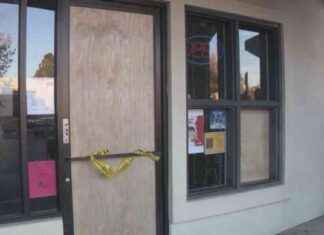China is known for taking stringent measures to stop outbreaks. This country still has a policy of eliminating every COVID-19 patient long after other countries have given up on trying to deal with the virus. The Dec. 23 lockdown in Xi’an was the most severe since a shutdown in 2020 around Wuhan. This was after coronavirus was first discovered in China.
Authorities announced on Tuesday that Yuzhou, Henan province’s other city, was under lockdown for the weekend following the discovery of three asymptomatic cases.
Although the Chinese have generally complied with the strict measures during the pandemic it has been criticized for their harsh policies, even though they face possible retaliation by Communist authorities. However, the Xi’an lockdown comes at a sensitive time as China prepares for the Beijing Winter Olympics which will open February 4. Therefore, it is under intense pressure to control this epidemic.
One resident of Xi’an posted the following message on Weibo: “Can’t get out of the building, and it’s becoming more and more difficult for you to buy food online.” Although the post was verified, the person didn’t respond to our request for more information.
Zhang Canyou, an expert in the State Council’s epidemic control and prevention team, acknowledged that there may be supply pressure within communities.
However, he was quoted as saying by the official Xinhua news agency: “The government will do all-out to coordinate resources in order to provide people daily necessities and medical care.”
The original lockdown in Xi’an allowed people to leave their homes every other day to go shopping for basic goods. However, it has been tightened since then. Rules vary depending on the severity of each outbreak. Some people cannot go outside at all, and must have their goods delivered to them. Only those with special permission can leave the city.
People in Xi’an have been seen browsing pop-up markets in recent days. Workers in white protective suits were serving them. To find out what people need, community volunteers visited their homes.
However, the strain is starting to show with residents complaining on Weibo about being unable to find necessities. One video was shared widely and showed guards attacking a man trying to deliver steamed buns for his family. According to a Weibo post by Xi’an police, the guards later made an apology to the man and were fined 200 yuan ($31).
A writer from Xi’an wrote in an online diary posted on the Weixin website that after panic-buying and closing of markets, people began looking for food online.
Jiang Xue wrote, “In this age material surplus, when everybody is trying to lose weight. Finding enough to eat suddenly became a difficult task.” The account did not respond to a message that was sent.
China’s “zero tolerance” strategy of quarantining all cases, mass testing, and trying to stop new infections from overseas helped to control previous outbreaks. However, the lockdowns in China are more severe than those in the West and have had a devastating impact on the economy as well as the lives of millions.
Many cases are only identified and the measures can be put in place. This was evident in Yuzhou. Residents were allowed to return home to Yuzhou, a city of 1.7million, but they are not allowed to leave. Only emergency vehicles are permitted on city roads. According to the city government, restaurants, sports facilities, as well as other businesses, have been closed down. Markets can only provide basic necessities.
Xi’an has experienced more than 1,600 infections in the past week. This surge is believed to be due to the delta strain, which officials claim is less contagious than the omicron strain. China has only reported a few cases. Tuesday saw another 95 cases.
Since the outbreak, China has reported 4,636 deaths and 102,841 new cases. These numbers are not as high as those in the U.S. or other countries and are likely to be undercounted everywhere. However, they show that the virus continues to spread despite China’s sometimes harsh measures.
According to state media, Xi’an has received a third round of mass-testing. It is capable of swabbing 10,000,000 people in seven hours and processing as many as 3 million results in 12 hours.
Although Wuhan’s healthcare system was overwhelmed by the pandemic that began in late 2019, China has yet to report any shortages in beds, medical equipment or staff in Xi’an. Xinhua reported that two dozen special teams were formed to handle COVID-19 cases, and two hospitals have been designated to provide additional care.
According to Our World in Data, China has vaccinated almost 85% of its people. Although the shots have reduced the severity of diseases, they are less effective than vaccines used elsewhere.
Officials have been given notice by authorities that they could lose their jobs if the number of cases does not decrease. This is a clear sign of the pressure the authorities are under to stop this outbreak. According to a statement by the Shaanxi government, the two top Communist Party officials from Yanta, where nearly half of the cases have been reported, have already been fired.
A representative of a tourist firm called Tuesday to say that supplies were adequate, but that his company had been experiencing difficulties since July.
“Now with the lockdown the effect has been extremely large,” stated the man. He gave his surname, Wen as it is common among Chinese.
Qin Huilin works in a traditional mutton soup establishment and said that the lockdown caused business to stop.
Qin stated by phone that Qin used to have around 100 customers per day. But, we haven’t had any in the past 12 days. “The impact on business is substantial, but I can still go shopping once a week in supermarkets with enough supplies.”






